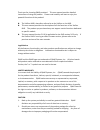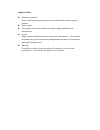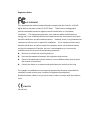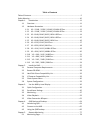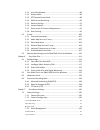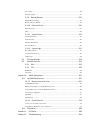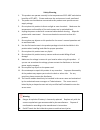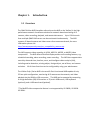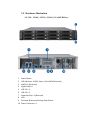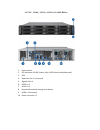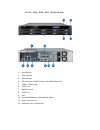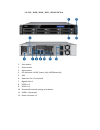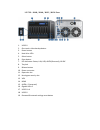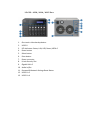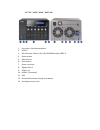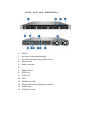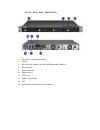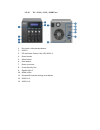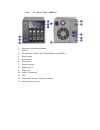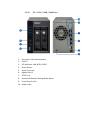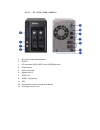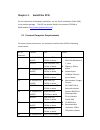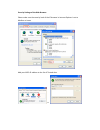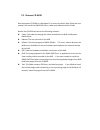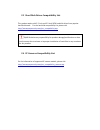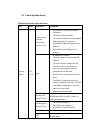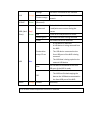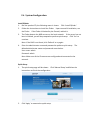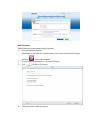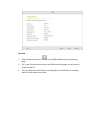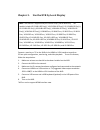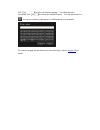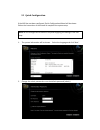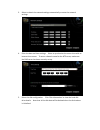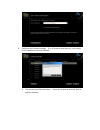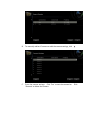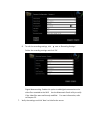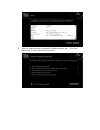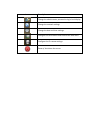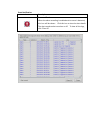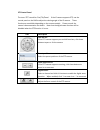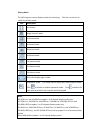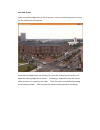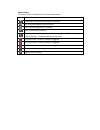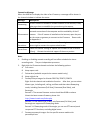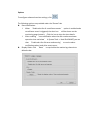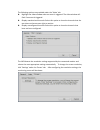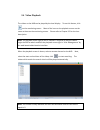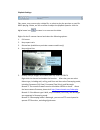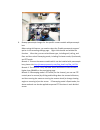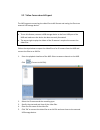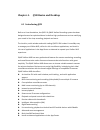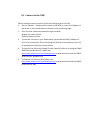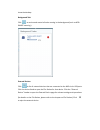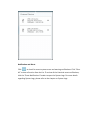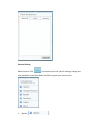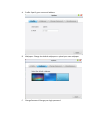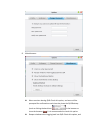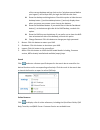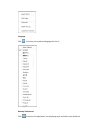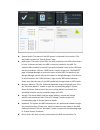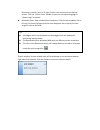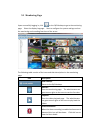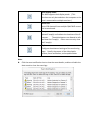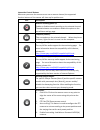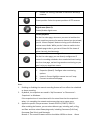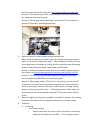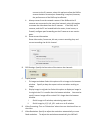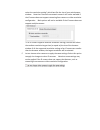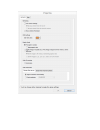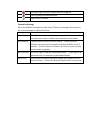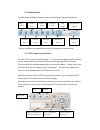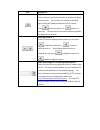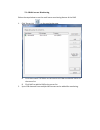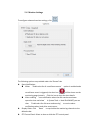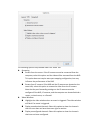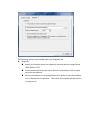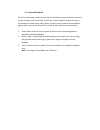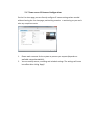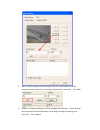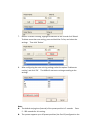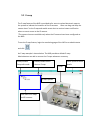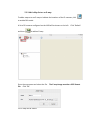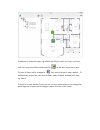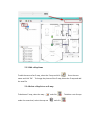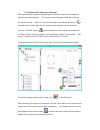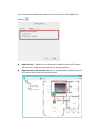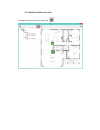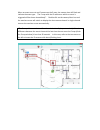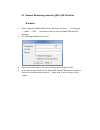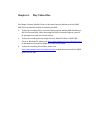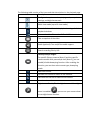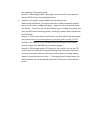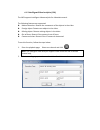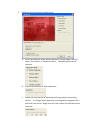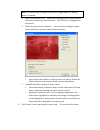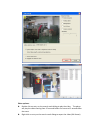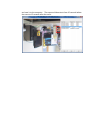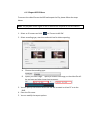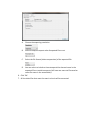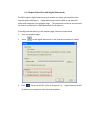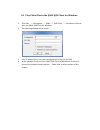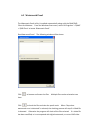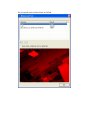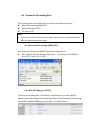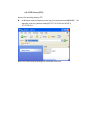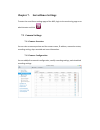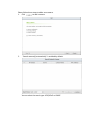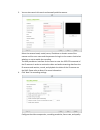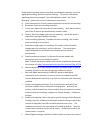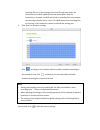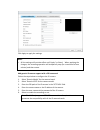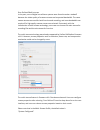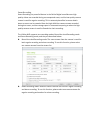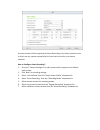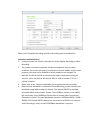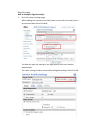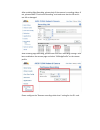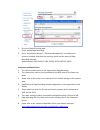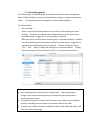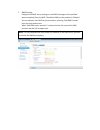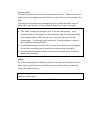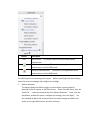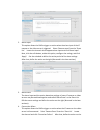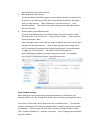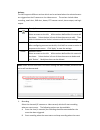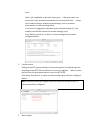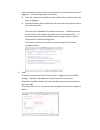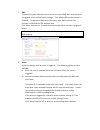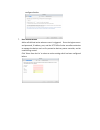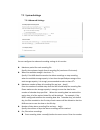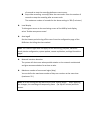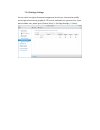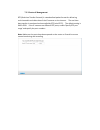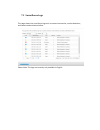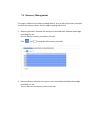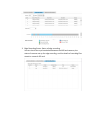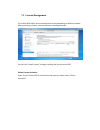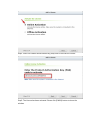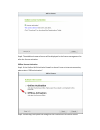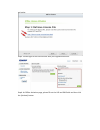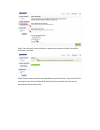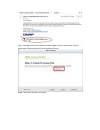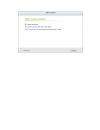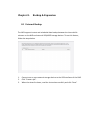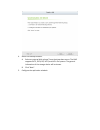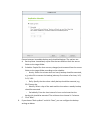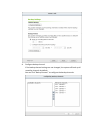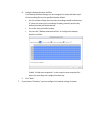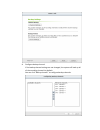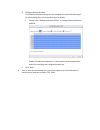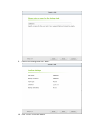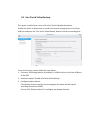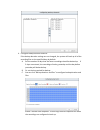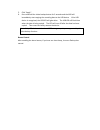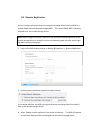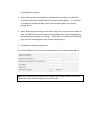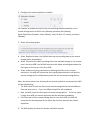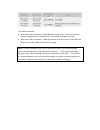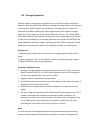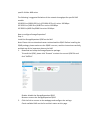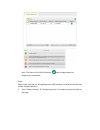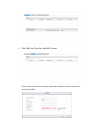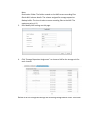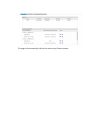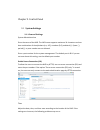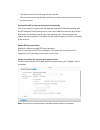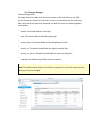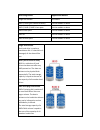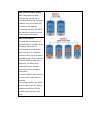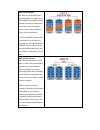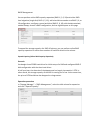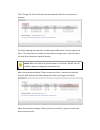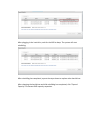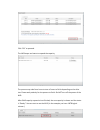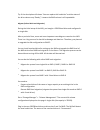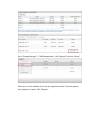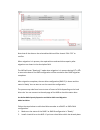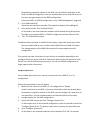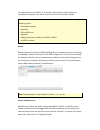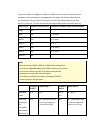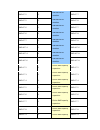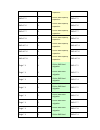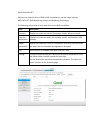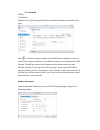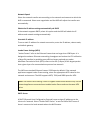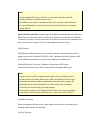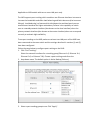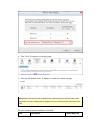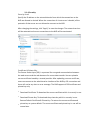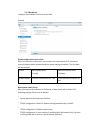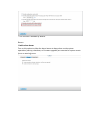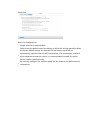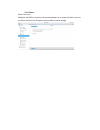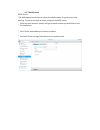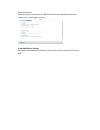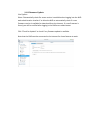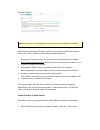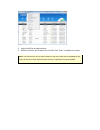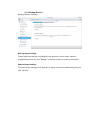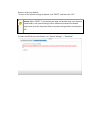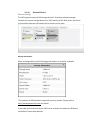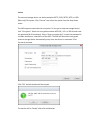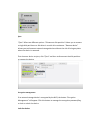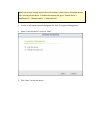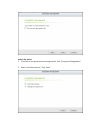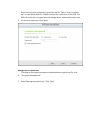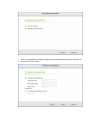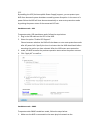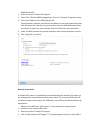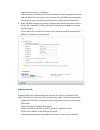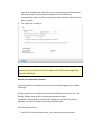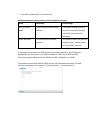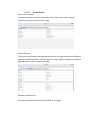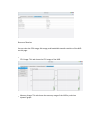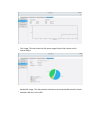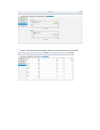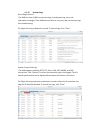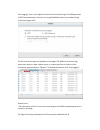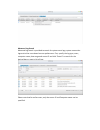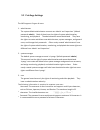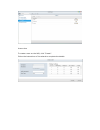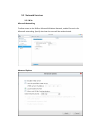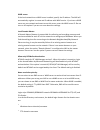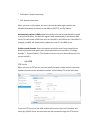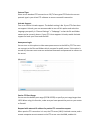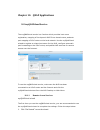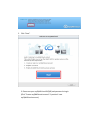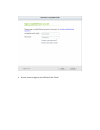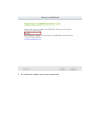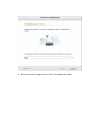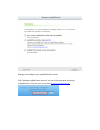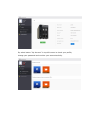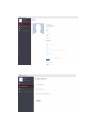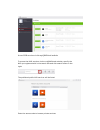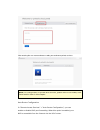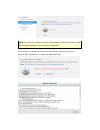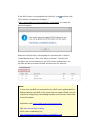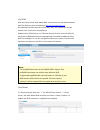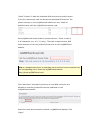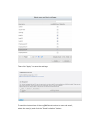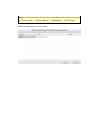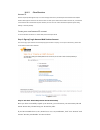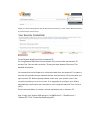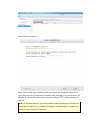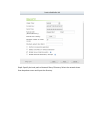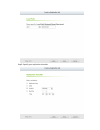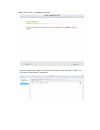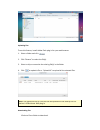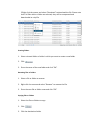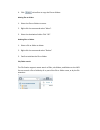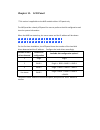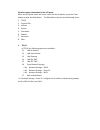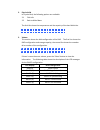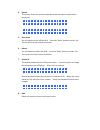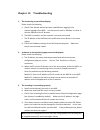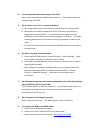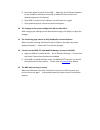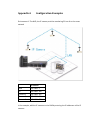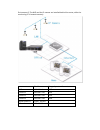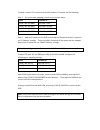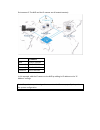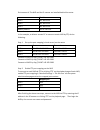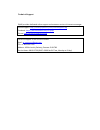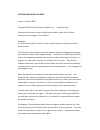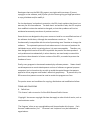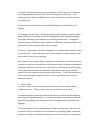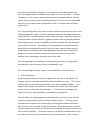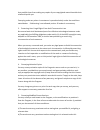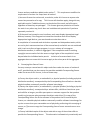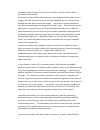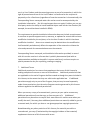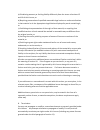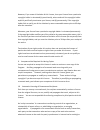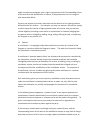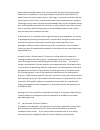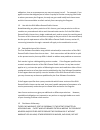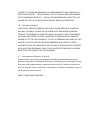- DL manuals
- QNAP
- Recording Equipment
- VIOSTOR
- User Manual
QNAP VIOSTOR User Manual
Summary of VIOSTOR
Page 1
V io s tor nvr n etwork v ideo r ecorder qvr qnap v io s tor r ecording s ystem user manual (version: 5.0.0) © 2014. Qnap systems, inc. All rights reserved..
Page 2
Thank you for choosing qnap products! This user manual provides detailed instructions of using the product. Please read carefully and start to enjoy the powerful functions of the product! the viostor nvr is hereafter referred to as the viostor or the nvr. this user manual provides the descriptio...
Page 3
Important notice reading instructions please read the safety warnings and user manual carefully before using this product. power supply this product can only be used with the power supply provided by the manufacturer. service please contact qualified technicians for any technical enquires. D...
Page 4
Regulatory notice fcc statement this equipment has been tested and found to comply with the limits for a class b digital device, pursuant to part 15 of fcc rules. These limits are designed to provide reasonable protection against harmful interference in a residential installation. This equipment gen...
Page 5
Table of contents table of contents ........................................................................................................... 5 safety warning ............................................................................................................. 10 chapter 1. Introduction .....
Page 6
5.1.1 live video window .......................................................................... 86 5.1.2 display mode ................................................................................... 88 5.1.3 ptz camera control panel ................................................................
Page 7
7.2 system settings ...................................................................................... 155 7.2.1 advanced settings .......................................................................... 155 7.2.2 privilege settings ................................................................
Page 8
Live update ...................................................................................................................................... 230 firmware update .............................................................................................................................. 231 9....
Page 9
Appendix a configuration examples ...................................................................... 297 technical support ....................................................................................................... 302 gnu general public license .........................................
Page 10
Safety warning 1. This product can operate normally in the temperature of 0ºc–40ºc and relative humidity of 0%–90%. Please make sure the environment is well-ventilated. 2. The power cord and devices connected to this product must provide correct supply voltage. 3. Do not place this product in direct...
Page 11: Chapter 1. Introduction
Chapter 1. Introduction 1.1 overview the qnap viostor nvr (hereafter referred to as the nvr or the viostor) is the high performance network surveillance solution for network-based monitoring of ip cameras, video recording, playback, and remote data access. Up to 128 channels from multiple qnap nvr s...
Page 12
1.2 hardware illustration 1.2.1 vs – 12164 / 12156 / 12148 / 12140u-rp pro+ 1 power button 2 led indicators: 10 gbe, status, lan, esata (reserved) 3 esata x 2 (reserved) 4 gigabit lan x 4 5 usb 2.0 x 4 6 usb 3.0 x 2 7 expansion slot x 2 (reserved) 8 vga 9 password & network settings reset button 10 ...
Page 13
1.2.2 vs – 12164 / 12156 / 12148 / 12140u-rp pro 1. Power button 2. Led indicators: 10 gbe, status, lan, esata select button(reserved) 3. Vga 4. Expansion slot x 1 (reserved) 5. Gigabit lan x 4 6. Usb 3.0 x 2 7. Usb 2.0 x 4 8. Password & network settings reset button 9. Esata x 2 (reserved) 10. Powe...
Page 14
1.2.3 vs – 8148 / 8140 / 8132 / 8124u-rp pro+ 1. Enter button 2. Power button 3. Select button 4. Led indicators: 10 gbe, status, lan, esata (reserved) 5. Esata x 2 (reserved) 6. Usb 2.0 x 4 7. Gigabit lan x 4 8. Usb 3.0 x 2 9. Vga 10. Password & network settings reset button 11. Power connector x 2...
Page 15
1.2.4 vs – 8148 / 8140 / 8132 / 8124u-rp pro 1. Enter button 2. Power button 3. Select button 4. Led indicators: 10 gbe, status, lan, esata(reserved) 5. Vga 6. Expansion slot x 2 (reserved) 7. Gigabit lan x 2 8. Usb 3.0 x 2 9. Usb 2.0 x 4 10. Password & network settings reset button 11. Esata x 2 (r...
Page 16
1.2.5 vs – 8148 / 8140 / 8132 / 8124 pro+ 1. Usb 3.0 2. One-touch -video-backup button 3. Power button 4. Hard drive leds 5. Select button 6. Enter button 7. Led indicators: status, lan, usb, esata (reserved), 10 gbe 8. Tray lock 9. Release button 10. Power connector 11. Expansion slot 12. Kensingto...
Page 17
1.2.6 vs – 6120 / 6116 / 6112 pro+ 1. One-touch -video-backup button 2. Usb 2.0 3. Led indicators: status, lan, usb, power, hdd1-6 4. Power button 5. Select button 6. Enter button 7. Power connector 8. K-lock security slot 9. Gigabit lan x 2 10. Audio in/out 11. Password & network settings reset but...
Page 18
1.2.7 vs – 6020 / 6016 / 6012 pro 1. One-touch -video-backup button 2. Usb 2.0 3. Led indicators: status, lan, usb, esata(reserved), hdd1–6 4. Power button 5. Select button 6. Enter button 7. Power connector 8. Gigabit lan x 2 9. Usb 2.0 x 4 10. Esata x 2 (reserved) 11. Vga 12. Password & network se...
Page 19
1.2.8 vs – 4116 / 4112 / 4108u-rp pro+ 1. Usb 2.0 2. One-touch -video-backup button 3. Led indicators: usb, status, hdd1–4, lan 4. Power button 5. Power connector 6. 7. Gigabit lan x 2 8. Usb 3.0 x 2 9. Usb 2.0 x 2 10. Gpio 11. Rs-485 (reserved) 12. Password & network settings reset button 13. Audio...
Page 20
1.2.9 vs – 4016 / 4012 / 4008u-rp pro 1. One-touch -video-backup button 2. Usb 2.0 3. Led indicators: status, lan, usb, esata(reserved), hdd1–4 4. Power button 5. Power connector 6. Gigabit lan x 2 7. Usb 2.0 x 4 8. Esata x 2 (reserved) 9. Vga 10. Password & network settings reset button.
Page 21
1.2.10 vs – 4116 / 4112 / 4108 pro+ 1. One-touch -video-backup button 2. Usb 2.0 3. Led indicators: status, lan, usb, hdd1–4 4. Power button 5. Select button 6. Enter button 7. Power connector 8. K-lock security slot 9. Gigabit lan x 2 10. Audio in/out 11. Password & network settings reset button 12...
Page 22
1.2.11 vs – 4016 / 4012 / 4008 pro 1. One-touch- video-backup button 2. Usb 2.0 3. Led indicators: status, lan, usb, esata(reserved), hdd1–4 4. Power button 5. Select button 6. Enter button 7. Power connector 8. Gigabit lan x 2 9. Usb 2.0 x 4 10. Esata x 2 (reserved) 11. Vga 12. Password & network s...
Page 23
1.2.12 vs – 2112 / 2108 / 2104 pro+ 1. One-touch -video-backup button 2. Usb 3.0 3. Led indicators: lan, hdd1, hdd2 4. Power button 5. Power connector 6. Gigabit lan x 2 7. Usb 2.0 x 4 8. Password & network settings reset button 9. K-lock security slot 10. Audio in/out.
Page 24
1.2.13 vs – 2012 / 2008 / 2004 pro 1. One-touch -video-backup button 2. Usb 2.0 3. Led indicators: hdd1, hdd2, lan, esata (reserved) 4. Power button 5. Power connector 6. Gigabit lan x 2 7. Usb 2.0 x 2 8. Esata x 2 (reserved) 9. Vga 10. Password & network settings reset button 11. Kensington securit...
Page 25
Chapter 2. Install the nvr for the information of hardware installation, see the ‘quick installation guide’ (qig) in the product package. The qig can also be found in the product cd-rom or qnap website ( http://www.Qnapsecurity.Com ). 2.1 personal computer requirements for better system performance,...
Page 26
Mxpeg or above m-jpeg quad core cpu 2.33ghz or above more than 48 h.264/mpeg-4/ mxpeg core i7 cpu 3.4ghz or above m-jpeg quad core cpu 3.0ghz or above.
Page 27
Security settings of the web browser please make sure the security level of the ie browser in internet options is set to medium or lower. Add your nvr’s ip address to the list of trusted sites. =>.
Page 28
2.2 browse cd-rom run the product cd-rom on a windows pc to access the quick start guide and user manual, and install the qnap qvr client, codec and software utilities finder. Browse the cd-rom and access the following contents: codec: the codec for playing avi videos recorded by the nvr via windo...
Page 29
2.3 hard disk drives compatibility list this product works with 2.5-inch and 3.5-inch sata hard disk drives from popular hard disk brands. For the hard disk compatibility list, please visit http://www.Qnapsecurity.Com/pro_compatibility.Asp . 2.4 ip cameras compatibility list for the information of s...
Page 30
2.5 check system status led display & system status overview led color led status description system status red/ green flashes green and red alternately every 0.5 sec 1. A hard drive on the nvr is being formatted 2. The nvr is being initialized 3. The system firmware is being updated 4. Raid rebuild...
Page 31
Lan orange orange the nvr is connected to the network flashes orange the nvr is being accessed from the network 10 gbe* green (reserved) hdd (hard drive) red/ green flashes red the hard drive data is being accessed and a read/write error occurs during the process red a hard drive read/write error oc...
Page 32
Beep alarm (beep alarm can be disabled in ‘system tools’ > ‘hardware settings’) beep sound no. Of times description short beep (0.5 sec) 1 1. The nvr is starting up 2. The nvr is being shut down (software shutdown) 3. The reset button is pressed 4. The system firmware has been updated short beep (0....
Page 33
2.6 system configuration install qfinder 1. Run the product cd, the following menu is shown. Click ‘install qfinder’. 2. Follow the instructions to install the finder. Upon successful installation, run the finder. If the finder is blocked by the firewall, unblock it. 3. The finder detects the nvr se...
Page 34
Add ip cameras please follow the steps below to add ip cameras. 1. Go to surveillance settings please login to the nvr as an administrator and click the surveillance settings shortcut on the qvr desktop. 2. Go to [camera configuration] -> [camera settings]. 3. Click to add an ip camera. 4. Follow th...
Page 35
Live view 1. Click the monitor shortcut on the qvr desktop to go to monitoring page. 2. If it is your first time connecting to the nvr monitoring page, you will need to install the add-on. 3. The live video from the ip cameras configured on the nvr and the recording status of each channel are shown..
Page 36
Chapter 3. Use the nvr by local display connect a monitor or tv to the nvr via the hdmi or vga interface to perform pc-less quick configuration, monitoring, and video playback. To use this feature, follow the steps below: 1. Make sure at least one hard drive has been installed on the nvr. 2. Connect...
Page 37
When the nvr is turned on, the login screen will be shown. Select the language. Enter the administrator name and password. If the nvr has not been configured, skip the login page and enter quick configuration (refer to chapter 3.1). Default user name: admin password: admin.
Page 38
Click to select the display language. If a usb keyboard is connected, click to choose the keyboard layout. Click the keyboard icon to enter the necessary information if a usb keyboard is not available. The monitoring page will be shown upon successful login, refer to chapter 3.3 for details..
Page 39
3.1 quick configuration if the nvr has not been configured, quick configuration wizard will be shown. Follow the instructions of the wizard to complete the system setup. 1. The system information will be shown. Select the language and click ‘next’. 2. Change the admin password or use the default pas...
Page 40
3. Select to obtain the network settings automatically or enter the network settings. 4. Enter the date and time settings. Select to synchronize the server time with an internet time server. To enter a domain name for the ntp server, make sure the dns server has been correctly set up. 5. Select the ...
Page 41
6. Configure the ip camera settings. If no ip cameras have been set, try to search for the cameras on the local network. A. The cameras found will be shown. Select the ip cameras and click ‘add’ to add the channels..
Page 42
B. To manually add an ip camera or edit the camera settings, click . C. Enter the camera settings. Click ‘test’ to test the connection. Click ‘remove’ to delete the camera..
Page 43
D. To edit the recording settings, click next to ‘recording settings’. Define the recording settings and click ‘ok’. Digital watermarking: enable this option to add digital watermarks to the video files recorded to the nvr. Use the watermark proof utility to verify if the video files were maliciousl...
Page 44
8. After the system has been initialized, the nvr is ready for use. Click ‘start monitoring’ to enter the monitoring screen..
Page 45
3.2 surveillance settings to manage the surveillance settings such as administrator password, network and time settings, click on the monitoring screen. Note that this button (option) will be shown for administrator access only. Select the language and click the icons to configure the settings..
Page 46
Icon description change the administrator password to login local display. Change the network settings. Change the date and time settings. Configure the disk volume and initialize the hard disks. Configure the ip camera settings. Restart/ shut down the server..
Page 47
3.3 monitoring upon successful login, the monitoring screen will be shown. Monitor the ip cameras, change the display mode, enable or disable manual recording, control the ptz cameras, and so on. Icon description monitor: enter the monitoring page. Playback: enter the playback page. Surveillance set...
Page 48
Settings, screen resolution, etc. About: view the server name, nvr model, and firmware version. Logout: logout the nvr. Manual recording: enable or disable recording on the ip camera. The administrator can select to enable or disable this function in ‘camera settings’ > ‘recording settings’ on the w...
Page 49
Event notification icon description event notification: when the alarm recording is enabled and an event is detected, this icon will be shown. Click this icon to view the alert details. The alert sound can be turned on or off. To clear all the logs, click ‘clear all’..
Page 50
Ptz control panel the term ‘ptz’ stands for ‘pan/tilt/zoom’. If the ip camera supports ptz, use the control panel on the nvr to adjust the viewing angel of the ip camera. These functions are available depending on the camera models. Please consult the camera's documentation for details. Note that th...
Page 51
Display mode the nvr supports various display modes for monitoring. Click the correct icon to switch the display mode. Icon description full screen single-channel mode 4-channel mode 6-channel mode 8-channel mode 9-channel mode 10-channel mode 12-channel mode 16-channel mode select the display page ...
Page 52
Live view screen upon successful configuration of the ip cameras, enter the monitoring screen to view the live video from the cameras. If the camera supports pan and tilt functions, click the channel on the screen and adjust the viewing angle with a mouse. If zooming is supported, scroll the mouse w...
Page 53
Camera status the camera status is indicated by the icons shown below: icon camera status scheduled or continuous recording is in process this ip camera supports audio function this ip camera supports ptz function manual recording is enabled the recording triggered by advanced event management (‘cam...
Page 54
Connection message when the nvr fails to display the video of an ip camera, a message will be shown in the channel window to indicate the status. Message description connecting if the ip camera is located on remote network or the internet, it may take some time to establish the connection to the cam...
Page 55
Before using this feature, you need to select the ‘enable panomorph support’ option in the recording settings page. Right click the channel and enable the function. After that, you can select mount type, including wall, ceiling, and floor and then select dewarping mode, including perimeter mode, qua...
Page 56
Options to configure advanced monitor settings, click . The following options are provided under the ‘general’ tab. event notification: when ‘enable alert for all surveillance events’ option is enabled and a surveillance event is triggered, the alert icon will be shown on the monitoring page ins...
Page 57
The following options are provided under the ‘video’ tab. highlight the video window when an event is triggered: the video window will flash if an event is triggered. display unauthorized channels: select this option to show the channels that the user does not have access right to monitor. dis...
Page 58
If the monitor model cannot be detected, the nvr will provide the options 1920*1080, 1400*1050, 1280*1024, 1024*768..
Page 59
3.4 video playback the videos on the nvr can be played by the local display. To use this feature, click on the monitoring screen. Most of the icons on the playback screen are the same as those on the monitoring screen. Please refer to chapter 3.2 for the icon description. Note: the playback access r...
Page 60
Playback settings: play, pause, stop, reverse play a video file, or select to play the previous or next file. When playing a video, use the scroll bar to adjust the playback speed or click the digital zoom icon to zoom in or zoom out the video. Right click the ip camera channel and select the follow...
Page 61
6. Dewarp panomorph images: for the specific camera models with panomorph lens before using this feature, you need to select the ‘enable panomorph support’ option in the recording settings page. Right click channel and enable the function. After that, you can select mount type, including wall, ceili...
Page 62
3.5 video conversion & export the nvr supports converting the video files to avi format and saving the files to an external usb storage device. Note: to use this feature, connect a usb storage device to the front usb port of the nvr and make sure the device has been correctly formatted. The access r...
Page 64
Chapter 4. Qvr basics and desktop 4.1 introducing qvr built on a linux foundation, the qvr 5.0, qnap viostor recording system has been designed around an optimized kernel to deliver high-performance services satisfying your needs in live view, recording, playback and more. The intuitive, multi-windo...
Page 65
4.2 connect to the nvr follow the below steps to connect to the monitoring page of the nvr. 1. Run the qfinder. Double click the name of the nvr, or enter the ip address of the server in your web browser to connect to the monitoring page. 2. Enter the user name and password to login the nvr. Default...
Page 66
4.3 using the qvr desktop after you finish the basic nvr setup and login to the nvr, the following desktop will appear. Each main desktop feature is introduced in the following sections. Toolbar main menu click to show the main menu. It includes three parts: 1) qnap applications; 2) system features ...
Page 67
Show the desktop. Background task click to review and control all tasks running in the background (such as hdd smart scanning.) external devices click to list all external devices that are connected to the nvr via its usb ports. Click the device listed to open the file station for that device. Click...
Page 68
Notification and alerts click to check for recent system errors and warning notifications. Click “clear all” to clear all entries from the list. To review all the historical event notifications, click the “event notifications” header to open the system logs. For more details regarding system logs, p...
Page 69
Personal setting admin control: click to customize your user specific settings, change your user password, restart/shut down the nvr or log out your user account. 1. Options ( ):.
Page 70
A. Profile: specify your user email address. B. Wallpaper: change the default wallpaper or upload your own wallpaper. C. Change password: change your login password..
Page 71
D. Miscellaneous: warn me when leaving qvr: check this option, and users will be prompted for confirmation each time they leave the qvr desktop (such as clicking the back icon ( ) in the browser or close the browser ( ). It is recommended to check this option. reopen windows when logging back in...
Page 72
All the current desktop settings (such as the “windows opened before your logout”) will be kept after you login the nvr the next time. show the desktop switching button: check this option to hide the next desktop button ( ) and last desktop button ( ) and only display them when you move your mouse...
Page 73
Language click to choose your preferred language for the ui. Desktop preferences click to choose the application icon displaying style and select your preferred.
Page 74
Application opening mode on the desktop. Application icons can be switched between small thumbnails ( ) and detailed thumbnails ( ) and applications can be opened in the tab mode or the window mode. For the tab mode, the window will be opened to fit the entire nvr desktop and only one application wi...
Page 75
system health: the status of the nvr system is indicated in this section. Click the header to open the “system status” page. hdd health: the status of the hdds currently installed in the nvr will be shown in here. X1 means that only one hdd is currently installed in the nvr. For multiple hdds in...
Page 76
Disconnect or block a user or ip, right click the user and choose the desired actions. Click the “online users” header to open the corresponding page in “system logs” for details. scheduled tasks: tasks scheduled are listed here. Click the task dropdown list to list only the chosen category and th...
Page 77
Chapter 5. Remote monitoring use google chrome, mozilla firefox, or microsoft internet explorer and qnap qvr client to monitor the ip cameras of the nvr. Note: qnap qvr client is a client application developed by qnap systems, inc., used to locally or remotely access qnap nvr servers for performing ...
Page 78
5.1 monitoring page upon successfully logging in, click on the qvr desktop to go to the monitoring page. Select the display language. Start to configure the system settings and use the monitoring and recording functions of the server. The following table consists of the icons and their descriptions ...
Page 79
Dual-display mode: the nvr supports dual-display mode. (this function can only be used when the computer or the host is connected to multiple monitors.) server list: up to 128 channels from multiple qnap nvr servers can be monitored. E-map: upload e-map(s) and indicate the locations of the ip camera...
Page 80
Interactive control buttons whenever you move the mouse cursor over a camera channel, the supported function buttons of the camera will show up for quick access. Icon description manual recording (note 1): enable or disable manual recording on the selected channel. The administrator can enable or di...
Page 81
5. Disable live tracking: available on panasonic ns202(a) cameras. Preset position: select the preset positions of ptz cameras. Digital zoom (note 5): enable/disable digital zoom. Instant playback: on the live-view page, whenever you want to look back to check suspicious events of a camera channel y...
Page 82
The latest camera firmware, please visit http://www.Vivotek.Com/index.Php . Remark 2: if the mount type is wall, only panorama (full view), and rectangle are supported in dewarping mode. Remark 3: if dewarping mode is rectangle, you can use ptz control panel to operate ptz functions, excluding digit...
Page 83
Connect to the ip cameras, select this option to allow the nvr to stream the data. No extra port forwarding is required, however, the performance of the nvr may be affected. Ii. Always stream from the network camera: if the nvr and the ip cameras are connected to the same local network, select this ...
Page 84
Select the resolution setting* which best fits the size of your web browser window. Note that ‘stream from network camera’ will not be available if the ip camera does not support streaming from camera or video resolution configuration. Both options will not be available if the ip camera does not sup...
Page 86
5.1.1 live video window the live videos of the ip cameras configured on the nvr are shown on the monitoring page. Click the channel window to use the features supported by the ip camera, e.G. Digital zoom or pan/tilt/zoom. Camera status the camera status is indicated by the icons shown below: icon c...
Page 87
The alarm input 3 of the ip camera has been triggered a moving object has been detected digital zoom is enabled connection message when the nvr fails to display the video of an ip camera, a message will be shown in the channel window to indicate the status. Message description connecting if the ip c...
Page 88
5.1.2 display mode the nvr supports different display modes for viewing the monitoring channels. *you can configure the sequential interval in the sequential mode settings. 5.1.3 ptz camera control panel the term ‘ptz’ stands for ‘pan/tilt/zoom’. If an ip camera supports the ptz feature, use the con...
Page 89
Icon description digital zoom: select a channel and click this button to enable the digital zoom function. This function can also be enabled by right clicking the display window of the ptz camera. Press button to zoom in or button to zoom out. You can also use the mouse wheel to operate the digital ...
Page 90
5.1.4 multi-server monitoring follow the steps below to use the multi-server monitoring feature of the nvr. 1. Click ‘server list’ on the monitoring page. A. Click ‘auto detect’ to search for the nvr on the lan and add the server to the server list. B. Click ‘add’ to add the nvr to the server list. ...
Page 91
5.1.5 monitor settings to configure advanced monitor settings, click . The following options are provided under the ‘general’ tab. event notification: when ‘enable alert for all surveillance events’ option is enabled and a surveillance event is triggered, the alert icon will be shown on the moni...
Page 92
The following options are provided under the ‘video’ tab. streaming stream from the server: if the ip camera cannot be connected from the computer, select this option and the video will be streamed from the nvr. This option does not require extra port mapping configuration; but may influence the...
Page 93
The following options are provided under the ‘snapshot’ tab. snapshot specify the location where the snapshots are saved and the image format (jpeg, bmp or tiff). show timestamp and camera name: show the timestamp and the camera name on the snapshot. save the snapshot as it is displayed: sel...
Page 94
5.1.6 instant playback on the live-view page, whenever you want to look back to check suspicious events of a camera channel you just missed, just hit the ‘instant playback’ button to bring up the window to review recent feeds. While you don’t have to switch to the playback page to do so, you can sti...
Page 95
5.1.7 same-screen ip camera configurations on the live-view page, you can directly configure ip camera settings when needed without leaving the live-view page, maintaining seamless s monitoring so you won’t miss any suspicious events. 1. Please wait a moment for the system to process your request (d...
Page 96
5.1.8 auto cruising the auto cruising feature of the nvr is used to configure the ptz cameras to cruise according to the preset positions and the staying time set for each preset position. To use the auto cruising feature, follow the steps below. 1. On the monitoring page of the nvr, click and selec...
Page 97
5. Add: to add a setting for auto cruising, select the ‘preset name’ from the drop-down menu and enter the staying time (interval, in seconds). Click ‘add’. 6. Update: to change a setting on the list, highlight the selection. Select another preset position from the drop-down menu and/or change the s...
Page 98
7. Delete: to delete a setting, highlight a selection on the list and click ‘delete’. To delete more than one setting, press and hold the ctrl key and select the settings. Then click ‘delete’. 8. After configuring the auto cruising settings, select the option ‘enable auto cruising’ and click ‘ok’. T...
Page 99
Ptz cameras. Up to 20 settings for auto cruising can be configured. In other words, the nvr supports maximum 10 selections on the drop-down menu and 20 settings on the auto cruising list..
Page 100
5.2 e-map the e-map feature of the nvr is provided to for users to upload electronic maps to the system to indicate the locations of the ip cameras. Users can drag and drop the camera icons* to the e-map and enable event alert to receive instant notification when an event occurs to the ip camera. *t...
Page 101
5.2.1 icons and description icon description enable e-map edit mode. E-map edit mode in use. Click this icon to disable the edit mode. Add an e-map. Edit the name of an e-map. Remove a map or a camera icon. Event alert not in use. Click this icon to enable event alerts on the e-map. Event alert in u...
Page 102
5.2.2 add a map set or an e-map to add a map set or an e-map to indicate the locations of the ip cameras, click to enable edit mode. A list of ip cameras configured on the nvr will be shown on the left. Click ‘default’ and then to add an e-map. Enter the map name and select the file. The e-map image...
Page 103
To add one or multiple e-maps, e.G. Office1 and office2, under an e-map, e.G. Floor1, click the e-map icon of floor1 and then click to add the e-maps one by one. The icon of floor1 will be changed to when more than one e-map is added. To add another e-map of the same level of floor1, select ‘default...
Page 104
5.2.3 edit a map name to edit the name of an e-map, select the e-map and click . Enter the new name and click ‘ok’. To change the picture of the e-map, delete the e-map and add the new file. 5.2.4 delete a map set or an e-map to delete an e-map, select the map and click . To delete a set of maps und...
Page 105
5.2.5 indicate ip cameras on an e-map after uploading the e-maps, drag and drop the ip camera icons to the e-map(s) to indicate the camera location. The camera name will appear under the e-map on the top left column. When an icon of a fixed body or fixed dome ip camera is dropped to the e-map, right...
Page 106
You can choose the double-click action on the camera icon in “emap options” by clicking . open live view:whether or not edit mode is enabled, the view of ip camera will be shown in single-channel mode on the monitoring screen. open live view in new window:whether or not edit mode is enabled, the...
Page 107
5.2.6 enable/disable event alert to enable event alerts on an e-map, click ..
Page 108
When an event occurs to an ip camera on the e-map, the camera icon will flash and indicate the event type. The e-map with the ip camera on which an event is triggered will be shown immediately*. Double click on the camera/alert icon and the monitor screen will switch to display the alert camera chan...
Page 109
The event type occurring to an ip camera can be identified by the camera icon on an e-map. Icon description a moving object has been detected the alarm input 1 of the ip camera has been triggered the alarm input 2 of the ip camera has been triggered the alarm input 3 of the ip camera has been trigge...
Page 110
5.3 remote monitoring from the qnap qvr client for windows 1. After installing the qnap qvr client for windows, click start → all programs → qnap → qvr → surveillance client to open the qnap qvr client for windows. 2. The following window will be shown. 3. Enter the ip address/port, user name and pa...
Page 111
Chapter 6. Play video files use google chrome, mozilla firefox, or microsoft internet explorer and the qnap qvr client to playback the files recorded by the nvr. 1. To play the recording files in internet explorer, please add the nvr ip address to the list of trusted sites. When accessing the nvr vi...
Page 112
6.1 playback page 1. Click the playback button on the monitoring page or the qvr desktop. 2. The playback page will be shown. You can search and play the video files on the nvr servers. To return to the monitoring page, click . To enter the surveillance settings page, click -> . Note: the playback a...
Page 113
The following table consists of the icons and their descriptions in the playback page. Icons description configure the options such as playing mode, snapshot settings, and digital watermark multi-view mode (up to 16-view mode) control all views: control the playback settings of all the playback wind...
Page 114
Playback and speed control shuttle bar playback control button: play/pause recording files speed up speed down last frame next frame right side of shuttle bar is normal play, and left side of shuttle bar is reverse play. When you drag the playback control button to right, it will play normally.. Whe...
Page 115
6.1.1 play video files from nvr follow the steps below to play the video files on the remote nvr servers. 1. Drag and drop camera(s) from the server/camera tree to the respective playback window(s) to select the channel(s) for playback. 2. Select playback date from . You can examine each channel to ...
Page 116
Are supported in dewarping mode. Remark 3: if dewarping mode is rectangle, you can use ptz control panel to operate ptz functions, excluding digital zoom. 2. Applied to the specific camera models with panomorph lens. Before using this feature, you need to select the ‘enable panomorph support’ option...
Page 117
6.1.2 intelligent video analytics (iva) the nvr supports intelligent video analytics for video data search. The following features are supported: motion detection: detects the movements of the objects in the video. foreign object: detects new objects in the video. missing object: detects missi...
Page 118
3. Configure the iva settings for video search. A. Select the detection mode: motion detection, foreign object, missing object, out of focus, or camera occlusion. Multiple options can be selected. B. Adjust the sensitivity for object detection. C. Adjust the time interval for detecting the foreign o...
Page 119
Note: the interval slide bar appears only when ‘foreign object’ or ‘missing object’ is selected. D. Define the detection zone. Mouse over the edge of the red zone and use the mouse to define the detection zone. Click ‘select all’ to highlight the entire area. E. Define the object size for detection....
Page 120
Other options: double click an entry on the search result dialog to play the video. The player will play the video starting from 15 seconds before the event to 15 seconds after the event. right click an entry on the search result dialog to export the video (avi format).
Page 121
And save it to the computer. The exported video starts from 15 seconds before the event to 15 seconds after the event..
Page 122
6.1.3 export nvr videos to convert the video files on the nvr and export the file, please follow the steps below. Note: the playback access rights of the ip cameras are required to use this feature. 1. Select an ip camera and click to ‘convert to avi file’. 2. Select recording type, start time and e...
Page 123
A. Choose the exporting resolution. B. Select to keep the aspect ratio of exported file or not. C. Select the file format (video compression) of the exported file. D. You can select to include a time stamp and the channel name in the exported file or to add comments (will have one more txt file save...
Page 124
6.1.4 export video files with digital watermark the nvr supports digital watermarking to protect the videos and snapshots from unauthorized modifications. Digital watermarks can be added to the exported videos and snapshots in the playback page. The watermark cannot be removed and can only be verifi...
Page 125
6.2 play video files in the qnap qvr client for windows 1. Click start → all programs → qnap → qvr client → surveillance client to open the qnap qvr client for windows. 2. The following window will be shown. 3. Enter ip address/port, user name and password to log into the nvr. 4. All the playback fu...
Page 126
6.3 watermark proof the watermark proof utility is installed automatically along with the qnap qvr client for windows. From the windows start menu, select ‘all programs’ > ‘qnap’ > ‘qvr client’ to locate ‘watermark proof’. Run watermark proof. The following window will be shown. Click to browse and ...
Page 127
File, the proof result will be shown as ‘failed’..
Page 128
6.4 access the recording data the recording data on the nvr can be accessed by the following services: microsoft networking (smb/cifs) web file manager (http) ftp server (ftp) note: to access the video files by these protocols, enter the user name and password with the administrator access rig...
Page 129
6.4.3 ftp server (ftp) access the recording data by ftp: in windows internet explorer, enter ftp://username:password@nvrip. For example, enter ftp://admin:admin@172.17.26.154 if the nvr ip is 172.17.26.154. Note: you cannot play recording files via double click here..
Page 130
Chapter 7. Surveillance settings to enter the surveillance settings page of the nvr, login to the monitoring page as an administrator and click . 7.1 camera settings 7.1.1 camera overview you can view a camera preview and the camera name, ip address, connection status, recording setting, days record...
Page 131
Please follow these steps to add a new camera. 1. Click to add a camera. 2. ‘search camera(s) automatically’ is enabled by default. You can select the search type: udp/upnp or onvif..
Page 132
3. You can also cancel this search and manually add the camera. Select the camera brand, model, name, ip address or domain name of the camera and the user name and the password to login to the camera. And select whether or not to enable the recording. The nvr provides an interface for the users to e...
Page 133
Enable audio recording, manual recording, recording data retention, real-time digital watermarking, and auto snapshot settings. For further information regarding cameras that support “user defined multi-stream” and “smart recording”, please refer to the list described in that section. A. Video compr...
Page 134
Recording files on its local storage (such as a sd card) even when the connection to the nvr suddenly becomes unavailable. After the connection is resumed, the nvr will check its recording files and compare the recording schedule set by users. If the nvr detects that recording files are missing, it ...
Page 135
Click apply to apply the settings. Note: 4. All the settings will not take effect until ‘apply’ is clicked. When applying the changes, the recording operation will temporarily stop (for a maximum of one minute) and then restart. Add generic ip camera support with a cgi command follow the steps below...
Page 136
User defined multi-stream in the past, users of digital surveillance systems were forced to make a tradeoff between the video quality of a camera stream and requested bandwidth. The same camera stream was used for both live view and recording, and more bandwidth was required if a high quality camera...
Page 137
Smart recording smart recording is a powerful feature in the field of digital surveillance as high quality videos are recorded during an unexpected event, and the low quality camera stream is used for regular recording. This is extremely beneficial as more details about an event can be revealed from...
Page 138
As more cameras will be supported for smart recording in the future, please be sure to check out our camera compatibility list from time to time for your camera selection. How to configure smart recording? 1. Go to the “camera configure” to add a camera which supports user defined multi-stream. 2. C...
Page 139
Please note: scheduled recording and alarm recording must be enabled first. Limitations and restrictions: 1. A camera stream can only be selected as for either regular recording or alarm recording. 2. The number of streams supported and stream properties (such as codec, resolution, frame rate and qu...
Page 140
Edge recording how to configure edge recording? 1. Go to the camera settings page. Before adding this camera to the nvr, please ensure that the camera time is synchronized with that of the nvr. The nvr will apply the settings in the edge profile to the axis camera automatically. The codec setting of...
Page 141
After enabling edge recording, please check if the camera is recording videos. If not, please enable “continuous recording” and make sure that the sd card is not full or damaged. After enabling edge recording, please make sure that "recording settings" have been enabled on the camera page and select...
Page 142
2. Go to the camera settings page. Please enable edge recording. 3. Go to “surveillance settings” >“recovery management” to configure the recovery schedule, and check the recovery status and the status of edge recording attempts. Applied models: axis p1343, p1344, p3343, p5534, m5013, q1602 limitati...
Page 143
7.1.3 event management the nvr provides ‘traditional mode’ and ‘advanced mode’ for event management. Select ‘traditional mode’ to use the standard alarm settings in response to the alarm events. To use advanced event management, select ‘advanced mode’. Traditional mode 1. Alarm settings select a cha...
Page 144
2. Smsc settings configure the smsc server settings to send sms messages to the specified phone number(s) from the nvr. The default sms service provider is clickatell. You can add your own sms service provider by selecting “add sms provider” from the drop-down menu. When “add sms service provider” i...
Page 145
Advanced mode the advanced mode consists of the event and action sections. Define the action to take for each event triggered on the ip cameras or the video servers connected to the nvr. To configure the advanced event management by the ‘advanced mode’, select an event type on the left event list an...
Page 146
Button description edit edit an event. This button cannot be used to edit camera disconnection. Add an external event. This button is not applicable to the camera events and the nvr events. Delete an external event. This button is not applicable to the camera events and the nvr events. The nvr suppo...
Page 147
2. Alarm input this option allows the nvr to trigger an action when the alarm input of the ip camera or the video server is triggered. Select ‘camera event’ from the ‘event list’. Locate the channel which supports alarm input and click ‘alarm input’. Next, click the edit button, enable this option, ...
Page 148
Right (discussed in the later sections). 5. Recording failure (nvr event) this option allows the nvr to trigger an action when the video recording of the ip camera or the video server fails due to the hard disk bad blocks, file system crash, or other reasons. Select ‘nvr event’ from the ‘event list’...
Page 149
The settings will be shown on the graphical table. Click ‘apply’ to save the settings. To use the same schedule for all the events, click ‘apply to all events’. Select to use the default schedule or a formerly created schedule from the list. The default alarm settings are active all day, every day..
Page 150
Actions: the nvr supports different actions which can be activated when the selected events are triggered on the ip cameras or the video servers. The actions include video recording, email alert, sms alert, buzzer, ptz camera control, alarm output, and logic output. Button description edit an action...
Page 151
Ends. Option (ii) is applicable to duration events only. A duration event is an event with a start and end time and lasts for a set period of time. It does not include the events related to status changes, such as a camera disconnection or nvr recording failure. If the action is triggered by a durat...
Page 152
Select to activate the alarm device connected to the ip camera when an event is triggered. The following options are available: a. Enter the number of second(s) the alarm device will be active for when the event is triggered. B. Activate the alarm device when the event starts and stop the alarm devi...
Page 153
5. Sms to allow the system administrator to receive an instant sms alert when an event is triggered, enter the sms server settings. The default sms service provider is clickatell. To add other sms service providers, click ‘add’ and enter the provider's name and the url template text. Click ‘select f...
Page 154
Configured before. 7. User-defined action add a self-defined action when an event is triggered. Enter the login account and password, ip address, port, and the http url of other surveillance devices to manage the devices such as fire protection devices, power controller, and air conditioning control...
Page 155
7.2 system settings 7.2.1 advanced settings you can configure the advanced recording settings in this section. maximum period for each recording file specify the maximum length of each recording file (maximum 15 minutes). when the available storage is less than…% specify if the nvr should overwr...
Page 156
Of seconds to start the recording before an event occurs. stop video recording…second(s) after the event ends: enter the number of seconds to stop the recording after an event ends. The maximum number of seconds for the above settings is 300 (5 minutes.) local display to allow guest access to th...
Page 157
7.2.2 privilege settings you can check the rights of camera management for all users. You can also modify access right of monitoring, playback, ptz control, and audio for a general user. If you want to add a user, please go to [control panel] -> [privilege settings] -> [users]..
Page 158
7.2.3 protocol management rtp (real-time transfer protocol) is a standardized packet format for delivering real-time audio and video data of the ip cameras on the internet. The real-time data transfer is monitored and controlled by rtp (also rtcp). The default setting is 6100–6299. If the ip cameras...
Page 159
7.3 surveillance logs this page shows the surveillance logs such as camera connection, motion detection, and camera authentication failure. Please note: the logs are currently only available in english..
Page 160
7.4 recovery management this page is related to the edge recording feature. You can edit the recovery schedule, monitor the recovery status, and the edge recording status here. 1. Recovery schedule: schedule for recovery of recorded data. Available when edge recording is in use. You can edit the rec...
Page 161
3. Edge recording status: status of edge recording you can check time synchronization between the nvr and cameras, the status of cameras set up for edge recording, and the details of recording files stored on camera’s sd card..
Page 162
7.5 license management the viostor nvr offers various channel base license depending on different models. After purchasing a license, you can add extra recording channels. You can click “install license” to begin installing the license to the nvr. Online license activation step1. If your viostor nvr...
Page 163
Step2. Enter the product authorization key (pak) code to activate the license. Step3. The license has been activated. Please click [finish] button to close the window..
Page 164
Step4. The additional camera license will be displayed in the license management list after the license activation. Offline license activation step1. If the viostor nvr is behind a firewall or doesn’t have an internet connection, please select “offline activation”. Step2. Please copy the system udi ...
Page 165
Activation. Step3. Please login to the license store with your registered account. Step4. At offline activation page, please fill out the udi and pak fields and then click the [activate] button..
Page 166
Step5. You will receive an email with an attached permission file after the offline activation is verified. Step6. Please check the email and download the permission file. The permission file can only be used on the viostor nvr with the udi you specified. Please do not decompress the permission file...
Page 167
Step7. Please go back to the offline activation page on your viostor nvr. You will need import the permission file to activate the license. Step8. The license has been activated..
Page 169
7.6 on-line users list (only for upgrade from previous version) this page shows the information of the users before you upgraded to qvr 5.0, e.G. The user name, ip address, and login time. Please note: the logs are currently only available in english..
Page 170
Chapter 8. Backup & expansion 8.1 external backup the nvr supports instant and scheduled data backup between the internal disk volumes on the nvr and external usb/esata storage devices. To use this feature, follow the steps below. 1. Connect one or more external storage devices to the usb interfaces...
Page 171
4. Select the backup locations. A. Select an external disk volume* from the drop-down menu. The nvr supports ext3, ext4, fat, ntfs, and hfs+ file systems. The general information of the storage device will be shown. B. Click “next”. 5. Configure the replication schedule..
Page 172
Choose between immediate backup and scheduled backup. The options are: a. Back up now: immediately copies files that are different from the source folder to the target folder. B. Schedule: copies files that are new, changed, and renamed from the source folder to the target folder according to the sc...
Page 173
A. Configure backup channel. If the backup channel settings are not changed, the system will back up all recording channels by default. You can click “backup channel” to configure the backup channels..
Page 174
B. Configure backup duration and files if the backup duration settings are not changed, the system will back up all of the recording files on the specified days by default. Set the number of days that the latest recordings should be backed up. If 3 days are entered, the recordings of today, yesterda...
Page 175
A. Configure backup channel. If the backup channel settings are not changed, the system will back up all of the recording channels by default. You can click “backup channel” to configure backup channels..
Page 176
B. Configure backup duration if the backup duration settings are not changed, the system will back up all of the recording files on the specified days by default. You can click “backup duration and files” to configure backup duration and files enable “include auto snapshots” to also copy the auto sn...
Page 177
9. Confirm the settings and click “next”. 10. Click “finish” to exit the wizard..
Page 178
8.2 one touch video backup this option is valid only for series with a one touch video backup button. Enable this option to allow users to connect an external storage device to the front usb port and press the “one touch video backup” button to back up recording files. To use this function, please f...
Page 179
4. Configure backup duration and files if the backup duration settings are not changed, the system will back up all of the recording files on the specified days by default. A. Set the number of days that the latest recordings should be backed up. If 3 days are entered, the recordings of today, yeste...
Page 180
5. Click “apply”. 6. Press and hold the video backup button for 3 seconds and the nvr will immediately start copying the recording data to the usb device. If the usb device is recognized, the usb led will glow blue. The usb led will flash blue when the data is being copied. The led will turn off aft...
Page 181
8.3 remote replication use the remote replication feature to copy the recording data of the local nvr to a remote qnap network attached storage (nas). The remote qnap nas is hereafter referred to as ‘the remote storage device’. Note: before using this function, make sure the microsoft networking ser...
Page 182
According to the settings. Select ‘back up alarm recordings only (instead of all recordings)’, the nvr will only copy the alarm recording data to the remote storage device. If this option is unselected, the nvr will back up all of the recording data to the remote storage device. Select ‘back up the ...
Page 183
4. Configure the remote replication schedule for example, to enable the nvr to copy the recording data automatically to the remote storage device at 01:15 every monday, please do the following: select ‘replication schedule’, select ‘weekly’, enter 01 hour: 15 minute, and select ‘monday’. 5. Select t...
Page 184
In the above example: when the status is shown as ‘failed (remote access error)’: check to see if the remote storage device is running and if the network settings are correct. When the status is shown as ‘failed (an internal error occurred)’: check the hard drive status of the nvr and view the event...
Page 185
8.4 storage expansion without a doubt, storage plays a significant role in the field of digital surveillance. However, users everywhere are facing the challenge of storage capacity for long-term recording. Now, qnap security has introduced the storage expansion feature to eliminate this problem. Mak...
Page 186
Specific viostor nvr series. The following is suggested limitation of the network throughput for specific nvr models: vs-8100 pro+/8100u-rp pro (+)/12100u-rp pro (+) series: 360 mbps. Vs-2100 pro+/4100 pro+/6100 pro+ series: 160 mbps. Vs-2000 pro/4000 pro/6000 pro series: 90 mbps. How to configure s...
Page 187
Note: the status of an nvr will become after storage expansion assignment is completed. Step2: please make sure that the storageexpansion qpkg has been installed on the nas and enable storage expansion. 1. Go to “camera setting” “storage expansion” to configure relevant settings on the page..
Page 188
2. Click “nas list” then the “add nas” button. Please enter the ip, port, username, password, destination, volume and cache count for the nas..
Page 189
Note: destination folder: the folder created on the nas to save recording files. Obtain nas volume details: the volume assigned for storage expansion. Backup buffer: the time it takes to move recording files to the nas. The maximum value is 12. 3. Edit: modify nas settings on this page. 4. Click “st...
Page 190
The page will automatically refresh the status every fifteen minutes..
Page 191
Chapter 9. Control panel 9.1 system settings 9.1.1 general settings system administration enter the name of the nvr. The nvr name supports maximum 14 characters and can be a combination of the alphabets (a-z, a-z), numbers (0-9), and dash (-). Space ( ), period (.), or pure number are not allowed. E...
Page 192
• the display time of the recordings will be incorrect. • the time of the event log displayed will be inconsistent with the actual time when an action occurs. Synchronize with an internet time server automatically turn on this option to synchronize the date and time of the nvr automatically with an ...
Page 193
9.1.2 storage manager volume management this page shows the model, size, and current status of the hard drives on the nvr. You can format and check the hard drives, and scan the bad blocks on the hard drives. When the hard drives have been formatted, the nvr will create the following default share f...
Page 194
Disk configuration applied nvr models single disk volume all models raid 1, jbod (just a bunch of disks) 2-drive models or above raid 5, raid 6, raid 5+hot spare 4-drive models or above raid 6+hot spare 5-drive models or above raid 10 4-drive models or above raid 10+hot spare 5-drive models or above...
Page 195
Raid 1 mirroring disk volume raid 1 duplicates the data between two hard drives to provide disk mirroring. To create a raid 1 array, a minimum of 2 hard drives are required. The storage capacity of a raid 1 disk volume is equal to the size of the smallest hard drive. Raid 5 disk volume the data are ...
Page 196
Raid 6 disk volume the data are striped across all the hard drives in a raid 6 array. Raid 6 differs from raid 5 that a second set of parity information is stored across the member drives in the array. It tolerates failure of two hard drives. To create a raid 6 disk volume, a minimum of 4 hard drive...
Page 197
Raid management you can perform online raid capacity expansion (raid 1, 5, 6, 10) and online raid level migration (single disk, raid 1, 5, 10), add a hard drive member to a raid 5, 6, or 10 configuration, configure a spare hard drive (raid 5, 6, 10) with the data retained, enable bitmap, recover a r...
Page 198
Click “change” for the first hard drive to be replaced. Follow the instructions to proceed. Tip: after replacing the hard drive, the description field shows “you can replace this drive”. This means you can replace the hard drive to a larger one or skip this step if the hard drives have been replaced...
Page 199
After plugging in the hard drive, wait for the nvr to beep. The system will start rebuilding. After rebuilding has completed, repeat the steps above to replace other hard drives. After changing the hard drives and disk rebuilding has completed, click “expand capacity” to execute raid capacity expans...
Page 200
Click “ok” to proceed. The nvr beeps and starts to expand the capacity. The process may take from hours to tens of hours to finish depending on the drive size. Please wait patiently for the process to finish. Do not turn off the power of the nvr. After raid capacity expansion has finished, the new c...
Page 201
Tip: if the description still shows “you can replace this hard drive” and the status of the drive volume says “ready”, it means the raid volume is still expandable. Migrate (online raid level migration) during the initial setup of the nvr, you bought a 250gb hard drive and configured it as single di...
Page 202
Go to “storage manager” > “raid management”, click “migrate” from the “action.” select one or more available drives and the migration method. The drive capacity after migration is shown. Click “migrate”..
Page 203
Note that all the data on the selected hard drive will be cleared. Click “ok” to confirm. When migration is in process, the required time and total drive capacity after migration are shown in the description field. The nvr will enter “read only” mode when migration is in process during 11%–49% to as...
Page 204
Formatted as single disk volume on the nvr, you can add this hard drive to the raid 5 or raid 6 configuration. You are recommended to use hard disk drives of the same storage capacity for the raid configuration. 3. Select the raid 5 or raid 6 configuration on the “raid management” page and click “ad...
Page 205
The original data on the raid 5, 6, or 10 disk volume will be retained. After the configuration completes, the status of the disk volume will become “ready”. Note: a hot spare drive must be removed from the disk volume before executing the following action: • online raid capacity expansion • online ...
Page 206
If the disk volume is configured as raid 0 or jbod and one or more of the hard drive members are disconnected or unplugged, you can plug in the same hard drives into the same drive slots and use this function to recover the volume status from “not active” to “normal”. The disk volume can be used nor...
Page 207
Replacement) raid recovery (raid status: not active) n/a if re-plugging in all original hard drive to the nvr and they can be spun up, identified, accessed, and the hard drive superblock is not damaged. N/a if re- plugging in all original hard drives to the nvr and they can be spun up, identified, a...
Page 208
Member raid 5 * 4 1 add hard drive member raid 5 * 5 raid 5 * 4 2 add hard drive member raid 5 * 6 raid 5 * 4 3 add hard drive member raid 5 * 7 raid 5 * 4 4 add hard drive member raid 5 * 8 raid 5 * 5 1 add hard drive member raid 5 * 6 raid 5 * 5 2 add hard drive member raid 5 * 7 raid 5 * 5 3 add ...
Page 209
Raid 6 * 5 2 add hard drive member raid 6 * 7 raid 6 * 5 3 add hard drive member raid 6 * 8 raid 6 * 6 1 add hard drive member raid 6 * 7 raid 6 * 6 2 add hard drive member raid 6 * 8 raid 6 * 7 1 add hard drive member raid 6 * 8 raid 10 * 4 2 add hard drive member raid 10 * 6 raid 10 * 4 4 add hard...
Page 210
Expansion raid 6 * 5 1 online raid capacity expansion raid 6 * 5 raid 6 * 6 1 online raid capacity expansion raid 6 * 6 raid 6 * 7 1 online raid capacity expansion raid 6 * 7 raid 6 * 8 1 online raid capacity expansion raid 6 * 8 raid 10 * 4 1 online raid capacity expansion raid 10 * 4 raid 10 * 6 1...
Page 211
Migration single * 1 4 online raid level migration raid 6 * 5 single * 1 5 online raid level migration raid 6 * 6 single * 1 6 online raid level migration raid 6 * 7 single * 1 7 online raid level migration raid 6 * 8 single * 1 3 online raid level migration raid 10 * 4 single * 1 5 online raid leve...
Page 212
Raid 1 * 2 4 online raid level migration raid 6 * 6 raid 1 * 2 5 online raid level migration raid 6 * 7 raid 1 * 2 6 online raid level migration raid 6 * 8 raid 1 * 2 2 online raid level migration raid 10 * 4 raid 1 * 2 4 online raid level migration raid 10 * 6 raid 1 * 2 6 online raid level migrati...
Page 213
Hard disk s.M.A.R.T monitor the hard disk drives (hdd) health, temperature, and the usage status by hdd s.M.A.R.T. (self-monitoring analysis and reporting technology). The following information of each hard drive on the nvr is available. Field description summary display the hard drive s.M.A.R.T. Su...
Page 214
9.1.3 network tcp/ip (i) ip address configure the tcp/ip settings, dns server and default gateway of the nvr on this page. Click to edit the network settings. For the nvr with two lan ports, users can connect both network interfaces to two different switches and configure the tcp/ip settings. The nv...
Page 215
Network speed select the network transfer rate according to the network environment to which the nvr is connected. Select auto negotiation and the nvr will adjust the transfer rate automatically. Obtain the ip address settings automatically via dhcp if the network supports dhcp, select this option a...
Page 216
Note: • do not enable dhcp server if there is one the local network to avoid ip address conflicts or network access errors. • the dhcp server option is available to ethernet 1 only when both lan ports of a dual lan nvr are connected to the network and ethernet 1 is assigned with a fixed ip. Start ip...
Page 217
Applicable to nvr models with two or more lan ports only. The nvr supports port trunking which combines two ethernet interfaces into one to increase the bandwidth and offers load balancing and fault tolerance (also known as failover). Load balancing is a feature which distributes the workload evenly...
Page 218
4. Click “here” to connect to the login page. 5. Click the edit button under “ip address” to edit the network settings. Note: make sure the ethernet interfaces are connected to the correct switch and the switch has been configured to support the port trunking mode selected on the nvr. The port trunk...
Page 219
Balance-rr (round-robin) round-robin mode is good for general purpose load balancing between two ethernet interfaces. This mode transmits packets in sequential order from the first available slave through the last. Balance-rr provides load balancing and fault tolerance. Supports static trunking. Mak...
Page 220
802.3ad specification. Dynamic link aggregation mode provides load balancing and fault tolerance but requires a switch that supports ieee 802.3ad with lacp mode properly configured. Balance-tlb (adaptive transmit load balancing) balance-tlb uses channel bonding that does not require any special swit...
Page 221
9.1.4 security security level specify the ip address or the network domain from which the connections to the nvr are allowed or denied. When the connection of a host server is denied, all the protocols of that server are not allowed to connect to the nvr. After changing the settings, click “apply” t...
Page 223
9.1.5 hardware configure the hardware functions of the nvr. General enable configuration reset switch when this function is turned on, you can press the reset button for 3 seconds to reset the administrator password and the system settings to default. The disk data will be retained. System basic sys...
Page 224
• system port: 80 (system service port). • security level: low (allow all connections). • lcd panel password: (blank)*. *this feature is only provided by the nvr models with lcd panels. Advanced system reset (10 sec) after pressing the reset button for 10 seconds, you will hear two beeps at the thir...
Page 225
* this function is disabled by default. Buzzer enable alarm buzzer turn on this option to allow the alarm buzzer to beep when certain system operations (startup, shutdown, or firmware upgrade) are executed or system events (error or warning) occur..
Page 226
Smart fan smart fan configuration: • enable smart fan (recommended) select to use the default smart fan settings or define the settings manually. When the system default settings are selected, the fan rotation speed will be automatically adjusted when the nvr temperature, cpu temperature, and hard d...
Page 227
9.1.6 power power recovery configure the nvr to resume to the previous power-on or power-off status, turn on, or remain off when the ac power resumes after a power outage..
Page 228
9.1.7 notification smtp server the nvr supports email alert to inform the administrator of system errors and warning. To receive the alert by email, configure the smtp server. • select an email account: specify the type of email account you would like to use for email alerts. • email: enter email ad...
Page 229
Alert notification select the type of instant alert the nvr will send to the designated users when system events (warning/error) occur. E-mail notification settings specify the email addresses (maximum 2) to receive instant system alert from the nvr..
Page 230
9.1.8 firmware update live update select “automatically check if a newer version is available when logging into the nvr web administration interface” to allow the nvr to automatically check if a new firmware version is available for download from the internet. If a new firmware is found, you will be...
Page 231
Firmware update note: if the system is running properly, you do not need to update the firmware. Before updating the system firmware, make sure the product model and firmware version are correct. Follow the steps below to update firmware: 1. Download the release notes of the firmware from the qnap s...
Page 232
2. Login the nvr as an administrator. 3. Browse and select the firmware for the nvr. Click “start” to update the system. Note: the nvr servers of the same model on the same lan can be updated by the finder at the same time. Administrator access is required for system update..
Page 233
9.1.9 backup/restore backup/restore settings back up system settings to back up all the settings, including the user accounts, server name, network configuration and so on, click “backup” and select to open or save the setting file. Restore system settings to restore all the settings, click “browse”...
Page 234
Restore to factory default to reset all the system settings to default, click “reset” and then click “ok”. Caution: when “reset” is pressed on this page, all the disk data, user accounts, shared folders, and system settings will be cleared and restored to default. Always back up all the important da...
Page 235
9.1.10 external device external storage the nvr supports external usb storage devices* for backup and data storage. Connect the external storage device to a usb interface of the nvr, when the device is successfully detected, the details will be shown on this page. Storage information select a storag...
Page 236
Format the external storage device can be formatted as ext3, ext4, fat32, ntfs, or hfs+ (mac only) file system. Click “format” and select the option from the drop-down menu. The nvr supports external drive encryption. To encrypt an external storage device, click “encryption”. Select the encryption m...
Page 237
Eject “eject” offers two different options. “disconnect disk partition” allows you to remove a single disk partition or a disk drive in a multi-drive enclosure. “remove device” allows you to disconnect external storage devices without the risk of losing any data when the device is removed. First cho...
Page 238
Note: the external storage device cannot be locked if a real-time or scheduled backup job is running on the device. To disable the backup job, go to “control panel” > “applications” > “backup station” > “external drive”. 1. To lock an encrypted external storage device, click “encryption management”....
Page 239
Unlock the device 1. To unlock an encrypted external storage device, click “encryption management”. 2. Select “unlock this device”. Click “next”..
Page 240
3. Enter the encryption password or upload the key file. Select “save encryption key” to save the password in a hidden location on a hard drive of the nvr. The nvr will unlock the encrypted external storage device automatically every time the device is connected. Click “next”. Manage the encryption ...
Page 241
3. Select to change the encryption password or download the encryption key file to the local pc. Click “next”..
Page 242
Ups by enabling the ups (uninterruptible power supply) support, you can protect your nvr from abnormal system shutdown caused by power disruption. In the event of a power failure the nvr will shut down automatically or enter auto-protection mode by probing the power status of the connected ups unit....
Page 243
Snmp-based ups. 2. Select the option “enable ups support”. 3. Select “apc ups with snmp management” from the “protocol” drop down menu. 4. Enter the ip address of the snmp-based ups. 5. Choose between whether the nvr will shut down or enter auto-protection mode after ac power fails. Specify the time...
Page 244
Connected to the ups by a usb cable. 4. Choose between whether the nvr will shut down or enter auto-protection mode after ac power fails. Specify the time in minutes that the nvr should wait before executing the option you have selected. After the nvr enters auto-protection mode, the nvr resumes the...
Page 245
Mode after ac power fails. Specify the time in minutes that the nvr should wait before executing the option you have selected. After the nvr enters auto-protection mode, the nvr resumes the previous operation status when the power restores. 6. Click “apply all” to confirm. Note: to allow the ups dev...
Page 246
• if the nvr is powered off, it will remain off. Difference between auto-protection mode and power-off mode mode advantage disadvantage auto-protection mode the nvr resumes after power recovery. If the power outage lasts until the ups is turned off, the nvr may suffer from abnormal shutdown. Power-o...
Page 247
9.1.11 system status system information view the summary of system information such as the server name, memory, firmware and system up time on this page. Network status view the current network settings and statistics on this page and they are displayed based on network interfaces. Click the up arro...
Page 248
Resource monitor you can view the cpu usage, disk usage, and bandwidth transfer statistics of the nvr on this page. • cpu usage: this tab shows the cpu usage of the nvr. • memory usage: this tab shows the memory usage of the nvr by real-time dynamic graph..
Page 249
• disk usage: this tab shows the disk space usage of each disk volume and its shared folders. • bandwidth usage: this tab provides information about bandwidth transfer of each available lan port of the nvr..
Page 250
• process: this tab shows information about the processes running on the nvr..
Page 251
9.1.12 system logs recording statistics the nvr can store 10,000 recent event logs, including warning, error, and information messages. If the nvr does not function correctly, refer to the event logs for troubleshooting. Tip: right click a log to delete the record. To clear all logs, click “clear”. ...
Page 252
Start logging: turn on this option to archive the connection logs. The nvr generates a csv file automatically and saves it to a specified folder when the number of logs reaches the upper limit. The file-level access logs are available on this page. The nvr will record the logs when users access, cre...
Page 253
Advanced log search advanced log search is provided to search for system event logs, system connection logs and online users based on user preferences. First, specify the log type, users, computer name, date range and source ip and click “search” to search for the desired logs or reset to list all l...
Page 254
9.2 privilege settings the nvr supports 3 types of users: 1. Administrator the system default administrator accounts are ‘admin’ and ‘supervisor’ (default password: admin). Both of them have the rights of system administration, monitoring, and playback. The administrators cannot be deleted. They hav...
Page 255
Create a user to create a user on the nvr, click “create”. Follow the instructions of the wizard to complete the details..
Page 256
9.3 network services 9.3.1 win microsoft networking to allow access to the nvr on microsoft windows network, enable file service for microsoft networking. Specify also how the users will be authenticated. Advanced options.
Page 257
Wins server: if the local network has a wins server installed, specify the ip address. The nas will automatically register its name and ip address with wins service. If you have a wins server on your network and want to use this server, enter the wins server ip. Do not turn on this option if you are...
Page 258
• file station: domain+username • afp: domain+username when you turn on this option, the users can use the same login name format (domain\username) to connect to the nas via afp, ftp, and file station. Automatically register in dns: when this option is turned on and the nas is joined to an active di...
Page 259
Protocol type: select to use standard ftp connection or ssl/tls encrypted ftp. Select the correct protocol type in your client ftp software to ensure successful connection. Unicode support: turn on or off the unicode support. The default setting is no. If your ftp client does not support unicode, yo...
Page 260
Function. When this option is turned on, the nas replies the ip address you specify or automatically detects the external ip address so that the remote computer is able to connect to the ftp server..
Page 261
Chapter 10. Qnap applications 10.1 myqnapcloud service the myqnapcloud service is a function which provides host name registration, mapping of the dynamic nvr ip to a domain name, and auto port mapping of upnp router on the local network. Use the myqnapcloud wizard to register a unique host name for...
Page 262
2. Click “start”. 3. Please use your myqnapcloud id(qid) and password to login. (click "create myqnapcloud account" if you don't have myqnapcloud account.).
Page 263
4. Enter a name to register your nvr and click “next”..
Page 264
5. The wizard will configure your router automatically..
Page 265
6. Review the summary page and click “finish” to complete the wizard..
Page 266
Manage and configure your myqnapcloud account click “manage myqnapcloud account” on top of the page after launching myqnapcloud or log into your account at http://www.Myqnapcloud.Com ..
Page 267
After click your login id(qid) and password in “sign in” , you can enter your device name in “enter device name” to search your devices. Or you can select “my devices” from the drop down menu in left side to review all your device published services and details, including the name, ddns address, lan...
Page 268
Or, select button “my account” in top left corner to check your profile, change your password and monitor your account activity..
Page 270
Access nvr services via the myqnapcloud website to access the nvr services via the myqnapcloud website, specify the nvr you registered with in the search box and click search button in the right. The published public nvr services will be listed. Enter the access code to browse private services..
Page 271
After entering the user name and access code, you can browse private services. Note: for configuration on private nvr services, please refer to the ddns/cloud portal section later in this chapter. Auto router configuration in “remote access services” > “auto router configuration”, you can enable or ...
Page 272
Note: if there is more than one router on the network, only the one which is set as the default gateway of the nvr will be detected. Click “rescan” to detect the router if no upnp router is found on the local network and “diagnostics” to check the diagnostic logs..
Page 273
If the upnp router is incompatible with the nvr, click and then click “upnp router compatibility feedback...” (http://www.Qnap.Com/go/compatibility_router.Html) to contact the technical support. Select the nvr services to be allowed for remote access in section “forwarded services”. Then click “appl...
Page 274
My ddns with the cloud portal, web-based nvr services such as web administration and file station can be published to http://www.Myqnapcloud.Com . By enabling the nvr services in this step, they are opened for remote access even if they are not published. Enable the my ddns service in “remote access...
Page 275
Select “private” to hide the published nvr services from public access if you don’t want every user can access this published nvr service. The private services on the myqnapcloud website are only visible to specified users with the myqnapcloud access code. Set myqnapcloud access code for private ser...
Page 276
Then click “apply” to save the settings. To send the instructions of the myqnapcloud service to users via email, select the user(s) and click the “send invitation” button..
Page 277
Note: to use this function, the mail server settings must be properly configured in “control panel” > “system settings” > “notification” > “smtp server”. Enter the email address. Click “send”..
Page 278
10.1.2 cloud services amazon s3 amazon s3 (simple storage service) is an online storage web service provided by amazon web services. Qnap viostor nvr supports amazon s3 to allow the users to back up the data from the nvr to amazon s3, or download it from amazon s3 to the nvr at anytime. Besides, the...
Page 279
Check your access keys(access key id and secret access key). Click “create new access key” if you don’t have access keys. Create remote replication job on amazon s3 for using remote replication job on amazon s3, you must have one amazon s3 account first. You can refer to section “create your own ama...
Page 280
Step2: enter the job name. Step3: select usage type (upload or download) from the dropdown menu. Then input the access key, private key and remote path. A bucket is the root directory on amazon s3. You can do remote host testing by clicking "test". Other settings are optional. Note: to use this func...
Page 281
Step4: specify the local path as network share/ directory. Select the network share from dropdown menu and input the directory..
Page 282
Step5: specify your replication schedule..
Page 283
Step6: click "finish" to complete the setup. Upon successful job creation you will see the status of the replication job(s). You can edit or delete them if necessary..
Page 284
10.2 file station the file station allows the users to access the nvr on the internet and manage the files by a web browser. Before getting started enable the service in “control panel” > “applications” > “station manager”. Click the link on the page to access the file station. The file station can ...
Page 285
Uploading files to use this feature, install adobe flash plug-in for your web browser. 1. Select a folder and click . 2. Click “browse” to select the file(s). 3. Select to skip or overwrite the existing file(s) in the folder. 4. Click to upload a file or “upload all” to upload all the selected files...
Page 286
2.Right click the mouse and select “download” to download the file. Please note that if all files within a folder are selected, they will be compressed and downloaded as a zip file. Creating folders 1. Select a shared folder or folder in which you want to create a new folder. 2. Click . 3. Enter the...
Page 287
4. Click and confirm to copy the files or folders. Moving files or folders 1. Select the files or folders to move. 2. Right click the mouse and select “move”. 3. Select the destination folder. Click “ok”. Deleting files or folders 1. Select a file or folder to delete. 2. Right click the mouse and se...
Page 288: Chapter 11. Lcd Panel
Chapter 11. Lcd panel * this section is applicable to the nvr models with an lcd panel only. The nvr provides a handy lcd panel for users to perform the disk configuration and view the system information. When the nvr has started up, the server name and the ip address will be shown: n v r 5 f 4 d e ...
Page 289
For example, when five hard drives have been installed, the lcd panel shows: c o n f i g . D i s k s ? → r a i d 5 press the ‘select’ button to browse more options, e.G. Raid 6. Press the ‘enter’ button and the following message shows. Press the ‘select’ button to select ‘yes’ to confirm. C h o o s ...
Page 290
View the system information by the lcd panel when the lcd panel shows the server name and the ip address, press the ‘enter’ button to enter the main menu. The main menu consists of the following items: 1. Tcp/ip 2. Physical disk 3. Volume 4. System 5. Shut down 6. Reboot 7. Password 8. Back 1. Tcp/i...
Page 291
2. Physical disk in physical disk, the following options are available: 2.1 disk info 2.2 back to main menu the disk info shows the temperature and the capacity of the hard disk drive. D i s k : 1 t e m p : 5 0 ° c s i z e : 2 3 2 g b 3. Volume this section shows the disk configuration of the nvr. T...
Page 292
4. System this section shows the system temperature and the rotation speed of the system fan. C p u t e m p : 5 0 ° c s y s t e m p : 5 5 ° c s y s f a n : 8 6 5 r p m 5. Shut down use this option to turn off the nvr. Press the ‘select’ button to select ‘yes’. Then press the ‘enter’ button to confir...
Page 293
System messages when the nvr encounters system error, an error message will be shown on the lcd panel. Press the ‘enter’ button to view the message. Press the ‘enter’ button again to view the next message. S y s t e m e r r o r ! P l s . C h e c k l o g s system message description sys. Fan failed t...
Page 294
Chapter 12. Troubleshooting 1. The monitoring screen did not display. Please check the following: a. Check if the activex add-on has been installed when logging in the monitoring page of the nvr. Set the security level to ‘medium’ or lower in internet options of the ie browser. B. The nvr is turned ...
Page 295
4. I cannot login the administration page of the nvr. Please check if you have the administrator authority. Only administrators are allowed to login the nvr. 5. The live video is not clear or smooth sometimes. A. The image quality may be restricted and interfered by the network traffic. B. When ther...
Page 296
D. Run finder again to search for the nvr. Make sure all the firewall software on the computer have been turned off; or add the finder to the list of allowed programs in the firewall. E. If the nvr is not found, click ‘refresh’ on the finder to try again. F. If the problem persists, contact the tech...
Page 297: Appendix A
Appendix a configuration examples environment 1: the nvr, the ip camera, and the monitoring pc are all on the same network ip address nvr 192.168.1.1 pc 192.168.1.100 camera 1 192.168.1.101 camera 2 192.168.1.102 camera 3 192.168.1.103 in the example, add the ip cameras to the nvr by entering the ip...
Page 298
Environment 2: the nvr and the ip camera are installed behind the router, while the monitoring pc is located remotely ip address mapped port on the router nvr 192.168.1.1 8000 camera 1 192.168.1.101 8001 camera 2 192.168.1.102 8002 camera 3 192.168.1.103 8003 router public ip 219.87.144.205 pc 10.8....
Page 299
To allow a remote pc to connect to the nvr and the ip cameras, do the following: step 1. Set up the port mapping (virtual server) on the router. From forward to 219.87.144.205:8000 192.168.1.1:80 219.87.144.205:8001 192.168.1.101:80 219.87.144.205:8002 192.168.1.102:80 219.87.144.205:8003 192.168.1....
Page 300
Environment 3: the nvr and the ip camera are all located remotely ip address nvr 219.87.144.205 camera 1 61.62.100.101 camera 2 61.62.100.102 camera 3 61.62.100.103 in this example, add the ip camera to the nvr by adding its ip address to the ‘ip address’ settings. Note: if a particular port is assi...
Page 301
Environment 4: the nvr and the ip camera are installed behind the router ip address nvr 1 192.168.1.101 nvr 2 192.168.1.102 nvr 3 192.168.1.103 router public ip 219.87.145.205 in the example, to allow a remote pc to connect to each nvr by ftp, do the following: step 1. Set up the port mapping (virtu...
Page 302
Technical support qnap provides dedicated online support and customer service via instant messenger. Online support: http://www.Qnapsecurity.Com/onlinesupport.Asp facebook: https://www.Facebook.Com/nvr.Qnap forum: http://forum.Qnapsecurity.Com technical support in the usa and canada: email: q_suppor...
Page 303
Gnu general public license version 3, 29 june 2007 copyright © 2007 free software foundation, inc. Everyone is permitted to copy and distribute verbatim copies of this license document, but changing it is not allowed. Preamble the gnu general public license is a free, copyleft license for software a...
Page 304
Developers that use the gnu gpl protect your rights with two steps: (1) assert copyright on the software, and (2) offer you this license giving you legal permission to copy, distribute and/or modify it. For the developers' and authors' protection, the gpl clearly explains that there is no warranty f...
Page 305
To ‘modify’ a work means to copy from or adapt all or part of the work in a fashion requiring copyright permission, other than the making of an exact copy. The resulting work is called a ‘modified version’ of the earlier work or a work ‘based on’ the earlier work. A ‘covered work’ means either the u...
Page 306
The work with that major component, or to implement a standard interface for which an implementation is available to the public in source code form. A ‘major component’, in this context, means a major essential component (kernel, window system, and so on) of the specific operating system (if any) on...
Page 307
That prohibit them from making any copies of your copyrighted material outside their relationship with you. Conveying under any other circumstances is permitted solely under the conditions stated below. Sublicensing is not allowed; section 10 makes it unnecessary. 3. Protecting users' legal rights f...
Page 308
License and any conditions added under section 7. This requirement modifies the requirement in section 4 to ‘keep intact all notices’. C) you must license the entire work, as a whole, under this license to anyone who comes into possession of a copy. This license will therefore apply, along with any ...
Page 309
Noncommercially, and only if you received the object code with such an offer, in accord with subsection 6b. D) convey the object code by offering access from a designated place (gratis or for a charge), and offer equivalent access to the corresponding source in the same way through the same place at...
Page 310
Use in, a user product, and the conveying occurs as part of a transaction in which the right of possession and use of the user product is transferred to the recipient in perpetuity or for a fixed term (regardless of how the transaction is characterized), the corresponding source conveyed under this ...
Page 311
A) disclaiming warranty or limiting liability differently from the terms of sections 15 and 16 of this license; or b) requiring preservation of specified reasonable legal notices or author attributions in that material or in the appropriate legal notices displayed by works containing it; or c) prohi...
Page 312
However, if you cease all violation of this license, then your license from a particular copyright holder is reinstated (a) provisionally, unless and until the copyright holder explicitly and finally terminates your license, and (b) permanently, if the copyright holder fails to notify you of the vio...
Page 313
Under the previous paragraph, plus a right to possession of the corresponding source of the work from the predecessor in interest, if the predecessor has it or can get it with reasonable efforts. You may not impose any further restrictions on the exercise of the rights granted or affirmed under this...
Page 314
Other readily accessible means, then you must either (1) cause the corresponding source to be so available, or (2) arrange to deprive yourself of the benefit of the patent license for this particular work, or (3) arrange, in a manner consistent with the requirements of this license, to extend the pa...
Page 315
Obligations, then as a consequence you may not convey it at all. For example, if you agree to terms that obligate you to collect a royalty for further conveying from those to whom you convey the program, the only way you could satisfy both those terms and this license would be to refrain entirely fr...
Page 316
Limited to, the implied warranties of merchantability and fitness for a particular purpose. The entire risk as to the quality and performance of the program is with you. Should the program prove defective, you assume the cost of all necessary servicing, repair or correction. 16. Limitation of liabil...


